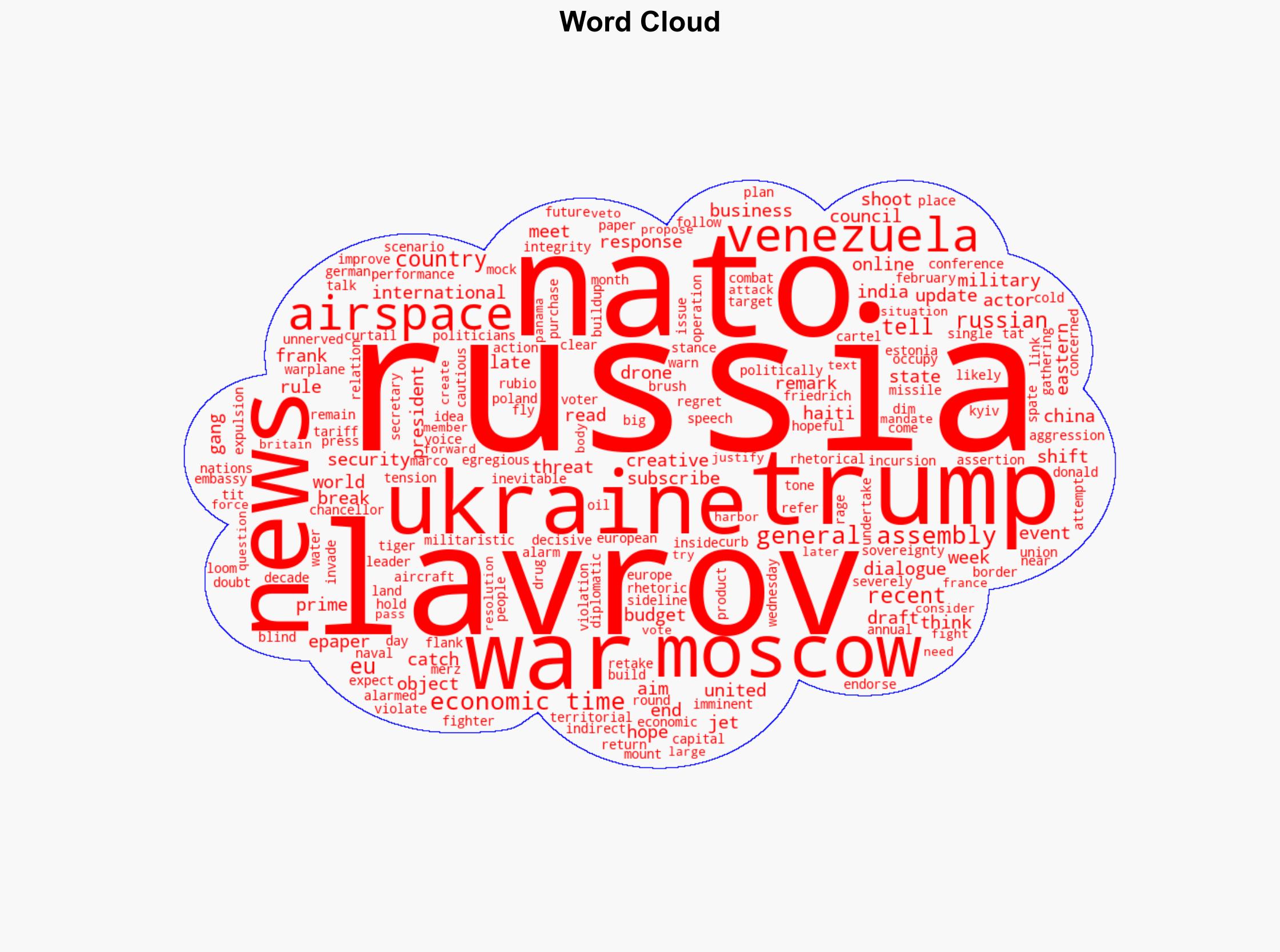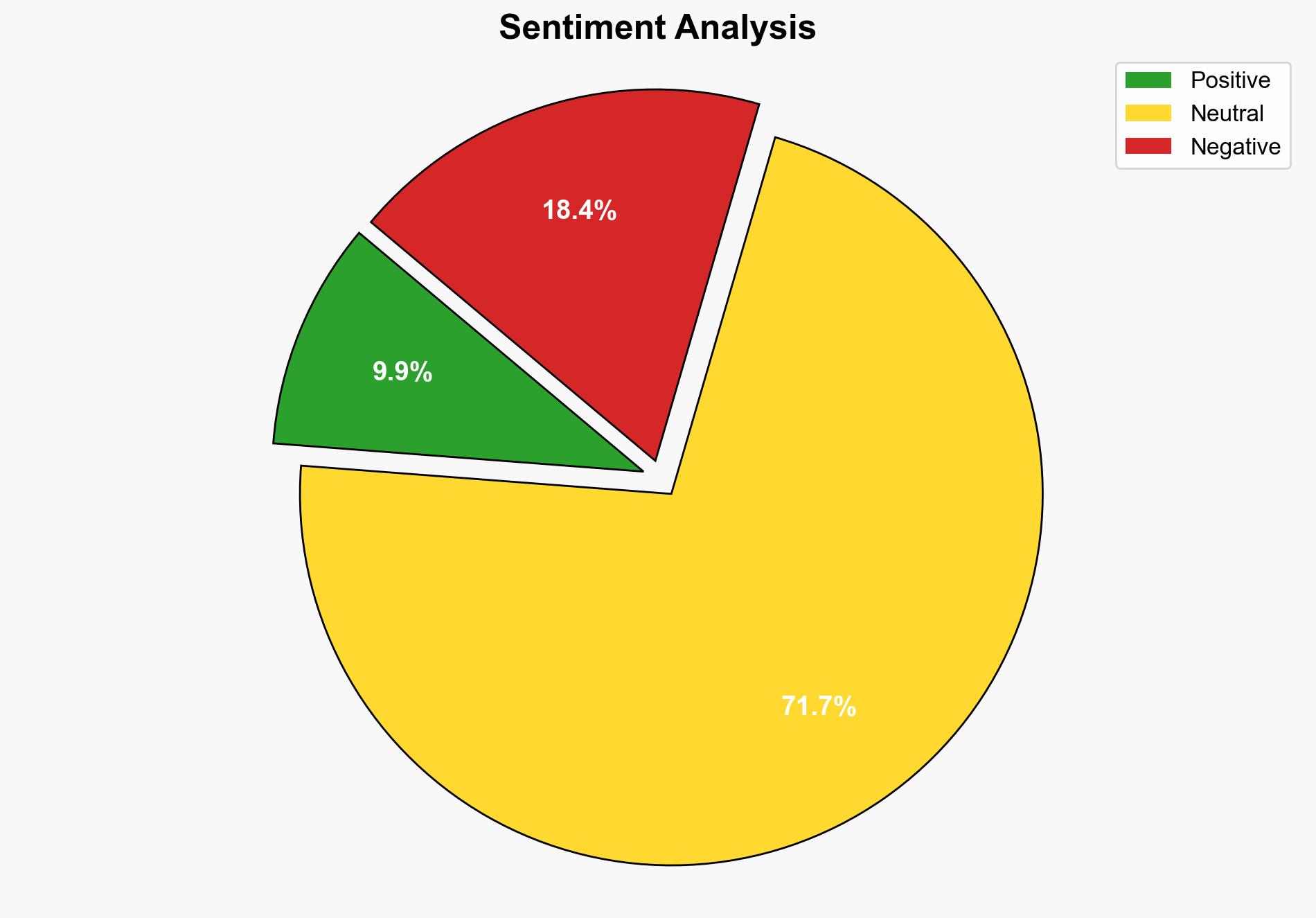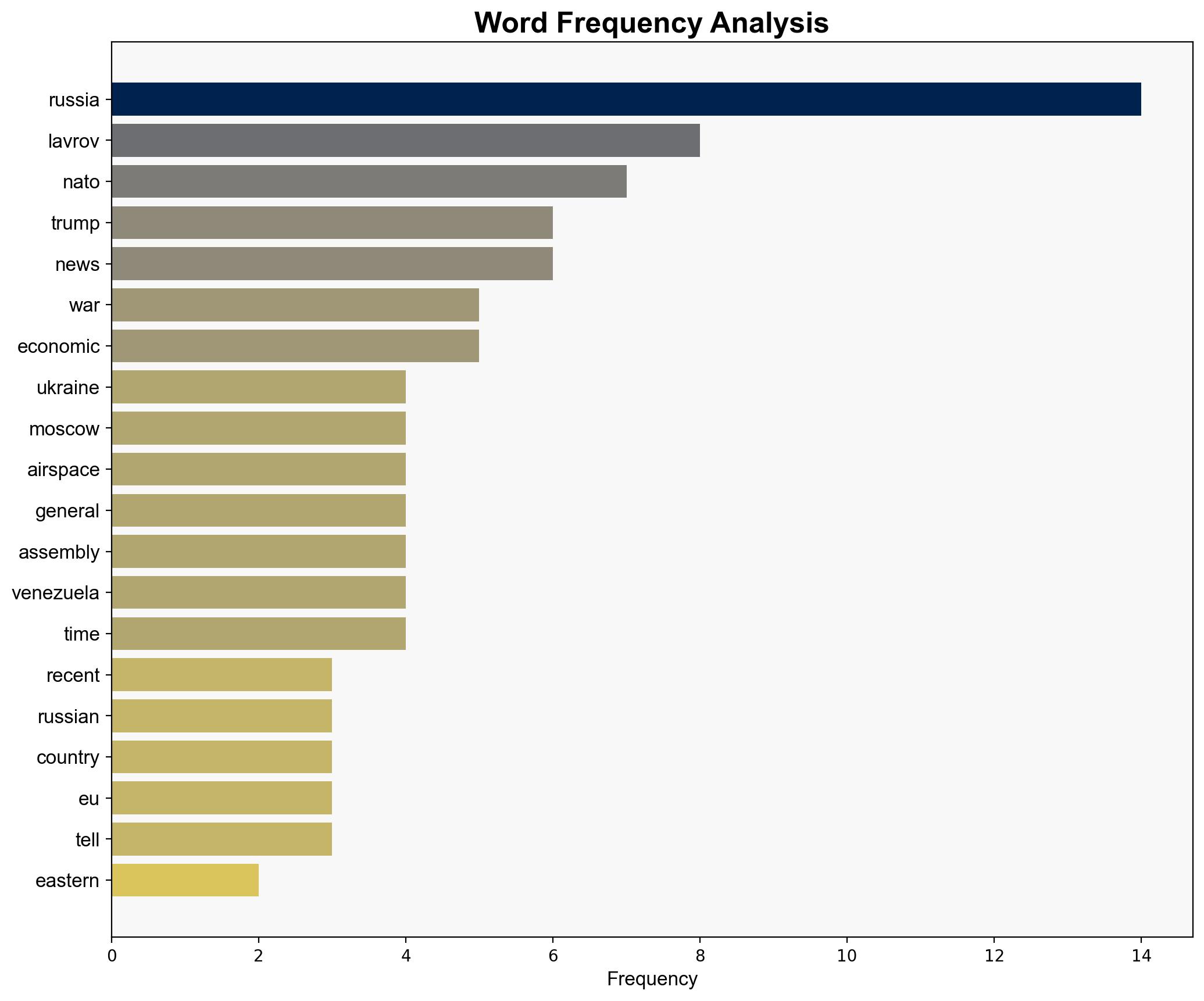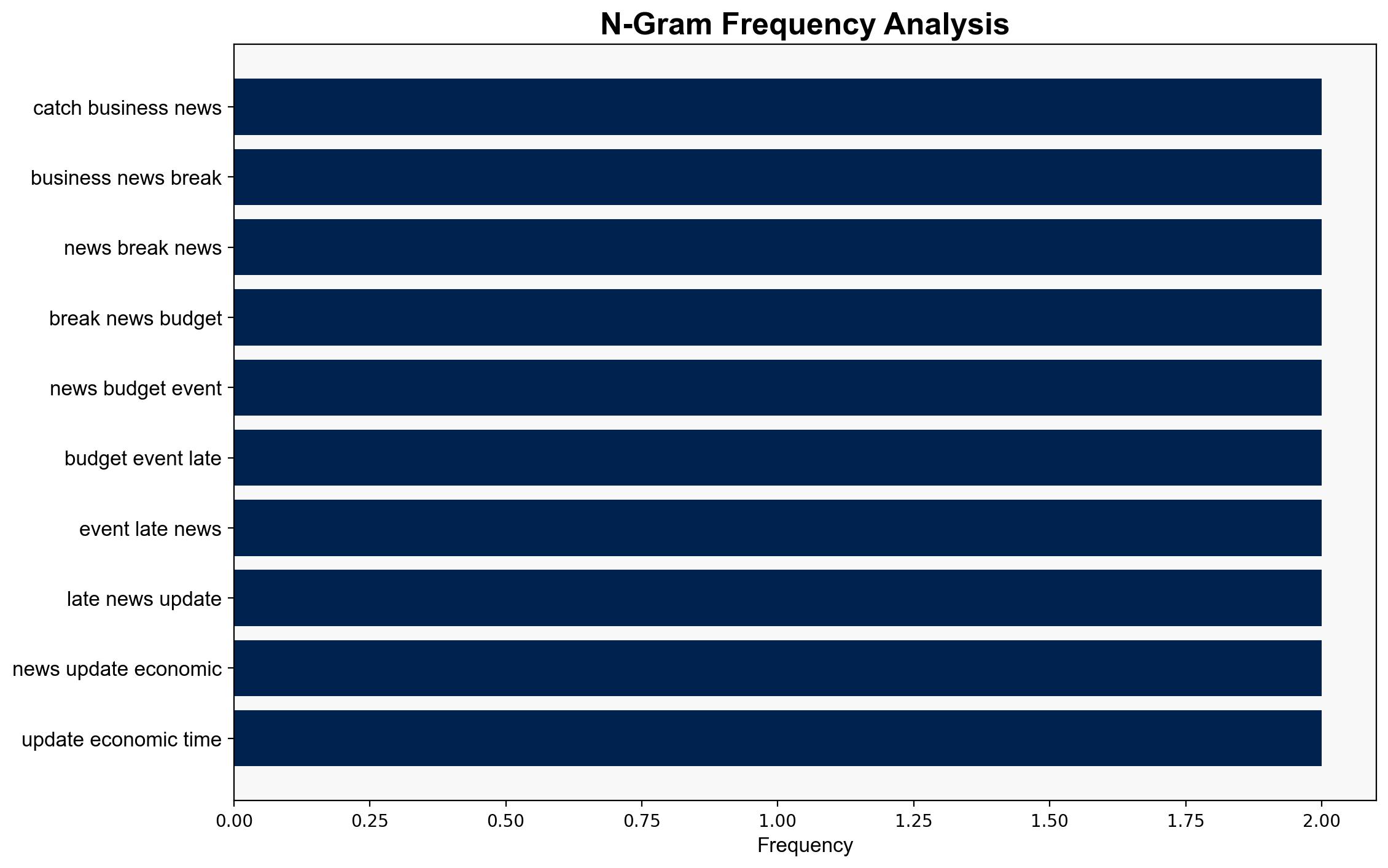Russia tells West Any aggression will be met with ‘decisive response’ – The Times of India
Published on: 2025-09-28
Intelligence Report: Russia tells West Any aggression will be met with ‘decisive response’ – The Times of India
1. BLUF (Bottom Line Up Front)
The most supported hypothesis is that Russia’s aggressive rhetoric is primarily a strategic posture aimed at deterring NATO and EU actions perceived as threatening, rather than an immediate precursor to military escalation. Confidence level: Moderate. Recommended action: Enhance diplomatic engagement with Russia while reinforcing NATO’s defensive posture in Eastern Europe to deter potential miscalculations.
2. Competing Hypotheses
1. **Hypothesis A**: Russia’s rhetoric and military posturing indicate a genuine intent to escalate military actions in response to perceived NATO provocations.
2. **Hypothesis B**: Russia’s statements are primarily a strategic deterrent, aimed at preventing further NATO expansion and maintaining regional influence without actual military escalation.
Using ACH 2.0, Hypothesis B is better supported due to the lack of immediate military mobilization and historical patterns of using rhetoric as a deterrent.
3. Key Assumptions and Red Flags
– **Assumptions**: Russia perceives NATO actions as direct threats; NATO’s defensive measures are interpreted as provocations.
– **Red Flags**: Increased airspace incursions could be misinterpreted, leading to unintended escalation. Lack of direct communication channels may exacerbate tensions.
– **Blind Spots**: Potential internal Russian political dynamics influencing external posturing are not fully explored.
4. Implications and Strategic Risks
– **Geopolitical**: Heightened tensions could lead to increased military presence in Eastern Europe, raising the risk of accidental engagements.
– **Economic**: Sanctions and counter-sanctions could impact global markets, particularly energy sectors.
– **Cyber**: Potential for cyber operations as a form of asymmetric response by Russia.
– **Psychological**: Escalating rhetoric may lead to public fear and pressure on governments to take defensive actions.
5. Recommendations and Outlook
- Enhance diplomatic channels with Russia to reduce misinterpretations and de-escalate tensions.
- Reinforce NATO’s defensive capabilities in Eastern Europe to deter potential aggression.
- Monitor cyber activities for signs of asymmetric responses.
- Scenario Projections:
- Best: Diplomatic engagement leads to reduced tensions and a stable Eastern Europe.
- Worst: Misinterpretations lead to military skirmishes, escalating to broader conflict.
- Most Likely: Continued rhetorical posturing without significant military escalation.
6. Key Individuals and Entities
– Sergey Lavrov
– Donald Trump
– Friedrich Merz
– Marco Rubio
7. Thematic Tags
national security threats, cybersecurity, counter-terrorism, regional focus




